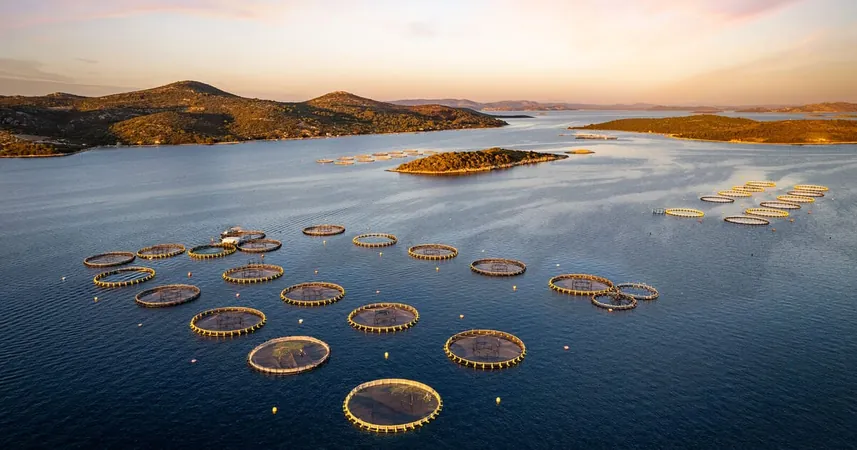
Revolutionary Carbon Capture Technology May Transform Fish Farming and Combat Climate Change!
2024-12-23
Author: Ming
Introduction
In a groundbreaking study, researchers are exploring a pioneering carbon capture model specifically designed for fish farms, which has the potential to revolutionize aquaculture and fight climate change.
The Research Published
A recent publication in Nature Food, led by Yale University researchers Mojtaba Fakhraee and Noah Planavsky, reveals how low-oxygen aquatic environments, such as fish farms, can be utilized to capture carbon dioxide (CO2) both efficiently and cost-effectively.
Innovative Approach
The innovative approach focuses on leveraging iron sulphide reactions to boost water alkalinity, which in turn enhances carbonate saturation and promotes CO2 absorption.
This dual-purpose process not only captures carbon emissions but also diminishes hydrogen sulphide levels in fish farms, potentially increasing overall productivity and fish health.
Statements from Researchers
Fakhraee emphasizes, "Fish farms provide an ideal environment to both reduce carbon emissions and improve fish welfare."
Implications for Aquaculture
The implications of this research could be enormous, especially for countries like China and Indonesia with vast aquaculture sectors.
The researchers estimate that China alone could capture an astonishing 100 million metric tonnes of CO2 each year by implementing this method.
Comparison with Other Technologies
What sets this model apart from other carbon capture technologies is its capability for near-permanent carbon storage, which can last for thousands of years, according to Fakhraee.
Future Prospects
While the technology is still under development, it has the potential to play a crucial role in achieving global climate goals, providing a sustainable and balanced approach to fish farming.
The Path Ahead
"This is just one potential pathway," Fakhraee remarked, "but it could significantly improve both carbon capture efforts and the sustainability of the fish farming industry."
As we look towards the future, this innovative research could pave the way towards greener aquaculture practices, helping to secure a healthier planet for generations to come.
Conclusion
With the growing concern over climate change and the need for sustainable food sources, the adoption of such technologies might be key to not only revitalizing the aquaculture industry but also combatting global warming.
Keep an eye on this developing story as scientists continue to explore the fascinating intersection of carbon capture and fish farming!



 Brasil (PT)
Brasil (PT)
 Canada (EN)
Canada (EN)
 Chile (ES)
Chile (ES)
 España (ES)
España (ES)
 France (FR)
France (FR)
 Hong Kong (EN)
Hong Kong (EN)
 Italia (IT)
Italia (IT)
 日本 (JA)
日本 (JA)
 Magyarország (HU)
Magyarország (HU)
 Norge (NO)
Norge (NO)
 Polska (PL)
Polska (PL)
 Schweiz (DE)
Schweiz (DE)
 Singapore (EN)
Singapore (EN)
 Sverige (SV)
Sverige (SV)
 Suomi (FI)
Suomi (FI)
 Türkiye (TR)
Türkiye (TR)